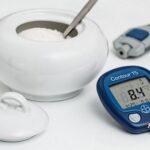Is there a treatment for COVID-19 that is effective?
COVID-19 can be treated using a variety of prospective and indicated medications.
What exactly are they and how do they function?
In 2019, there is just one medicine licensed by the US Food and
Drug Administration to treat coronavirus illness (COVID-19).
However, several medications are currently
being tested by professionals.
The US Food and Medication Administration has licensed remdesivir (Veklury),
an antiviral drug, to treat COVID-19 in adults and children aged 12 and above.
People who are hospitalized with COVID-19 and require supplementary oxygen
or are at risk of severe symptoms may be prescribed Remdesivir.
It is administered through a dermal injection (through a vein).
– Other potential COVID-19 therapies are being investigated by researchers, including:
-
Antiviral medications. ‘Favipiravir’ and ‘mirimipodib’,
two antiviral medicines,are being tested by researchers.
The combination of lopinavir and ritonavir is unsuccessful in studies
- Immunotherapy. Immunotherapies such as recovered plasma,
mesenchymal stem cells, and monoclonal antibodies,
which are proteins created in the lab that assist the immune system
fight viruses, are being studied by researchers.
Sotrofimab, a combination of pamlanivimab and ecefimab,
and a combination of cerevimab and imdivimab are monoclonal
antibody medicines. These medications are used to treat mild to moderate COVID-19
infections in patients who are at a high risk of getting a serious illness
as a result of the infection. In an outpatient environment, a single dose
is given via injection into the arm (intravenously).
To be most successful, these medications must be used as soon as COVID-19
symptoms appear and before the patient needs to be hospitalized.
Some monoclonal antibodies are ineffective against mutant COVID-19 strains.
Researchers are also looking at the use of convalescent plasma, a sort of immunotherapy.
The US Food and Drug Administration has approved the use of plasma
from recovered patients to treat emergency cases of Covid 19.
And the recovered plasma is blood donated by those who have recovered from Covid-19 illness.
The recovered plasma, which has a high rate of antibodies, can be utilized to
treat some persons who are hospitalized with early-stage Covid-19 disease or have a damaged immune system.
cResearchers are also looking at the use of convalescent plasma, a sort of immunotherapy.
The US Food and Drug Administration has approved the use of plasma from recovered
patients to treat emergency cases of Covid 19.
And the recovered plasma is blood donated by those who have recovered from Covid-19 illness.
The recovered plasma, which has a high rate of antibodies, can be utilized
to treat some persons who are hospitalized with early-stage Covid-19 disease
or have a damaged immune system.
-
Medicines that are being researched but have yet to be shown effective.
Two medicines, amlodipine, and losartan are being studied by researchers.
However, the effectiveness of these two medications in treating or preventing
Covid-19 illness is unknown. Famotidine has also not been shown to be useful in
the treatment of COVID-19.
-
Preventative medications for Covid 19. Researchers are testing some medications
to see if they can prevent Covid 19 before and after exposure to the virus.
In emergency conditions, the US Food and Drug Administration has approved
the use of casirevimab and imdevimab plus pamlanivimab and ecefimab,
a monoclonal antibody combination. These drugs may be used to treat persons
who are at high risk of having severe symptoms and have recently been diagnosed with
COVID-19 or are at high risk of contracting it. COVID-19 is most likely to infect those
who dwell in nursing homes or jails where others have recently contracted the disease.
This medication is for patients who have not received the complete
vaccine dose or who have received it but have a compromised immune system.
The US Food and Drug Administration has also approved the use of
the monoclonal antibody combination (texagifimab and silgavimab (Evusheld)
for the prevention of COVID-19 in some people with compromised immune systems
or a history of severe allergic reactions to the COVID-19 vaccine
in some people with compromised immune systems or a history
of severe allergic reactions to the COVID-19 vaccine.

-
For the treatment of inflammation. Researchers are looking at
the possibility of treating or preventing numerous organ dysfunction
and lung harm caused by infection-related inflammation with various
anti-inflammatory medicines.
It’s yet unclear whether any of these medications will work against COVID-19.
Clinical trials will be required to see if any of these medications
are effective against COVID-19.
Even if you hear good things about these over-the-counter drugs,
don’t attempt them without first consulting your doctor.
These medications have the potential to cause major side effects.
They’re for folks who are extremely unwell and under the care of a doctor.












